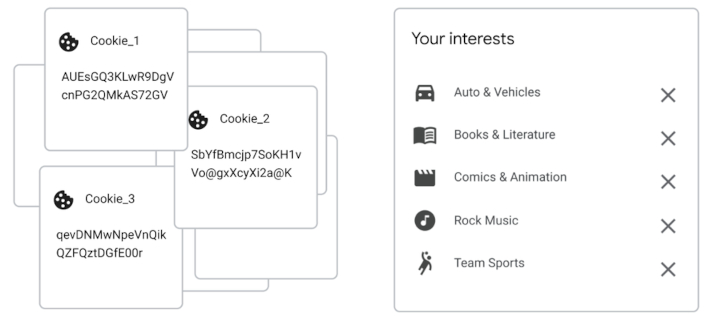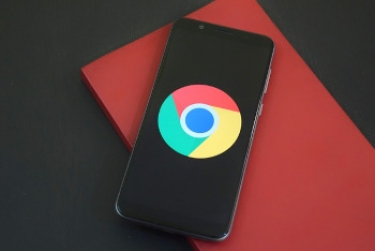The company began a trial of FLoC in April last year, for a random set of users who were not notified that they had been selected.
Google designed FLoC to help advertisers target ads after third-party cookies disappear but it was met with resistance from others like DuckDuckGo, Vivaldi, WordPress and Brave.
The digital rights organisation, Electronic Frontier Foundation, also expressed serious reservations about FLoC.
|
|

Google's illustrations of what one can see about third-party cookies (left) vs Topics (right).
Explaining the new initiative, Goel said: "With Topics, your browser determines a handful of topics, like 'Fitness' or 'Travel & Transportation', that represent your top interests for that week based on your browsing history.
"Topics are kept for only three weeks and old topics are deleted. Topics are selected entirely on your device without involving any external servers, including Google servers.
"When you visit a participating site, Topics picks just three topics, one topic from each of the past three weeks, to share with the site and its advertising partners.
"Topics enables browsers to give you meaningful transparency and control over this data, and in Chrome, we’re building user controls that let you see the topics, remove any you don’t like or disable the feature completely."










































